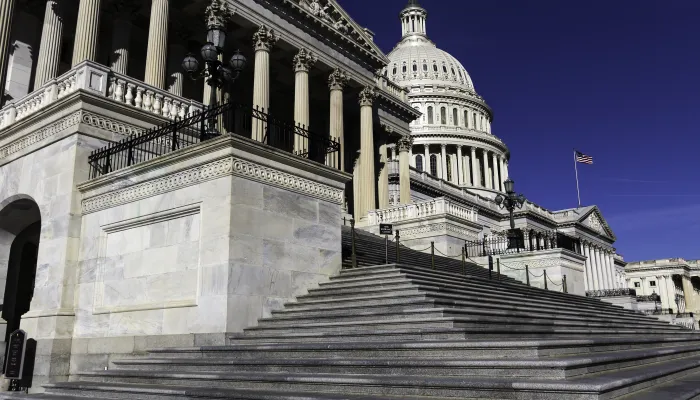Chairman Enzi Proposes Budget Process Reforms
Senate Budget Committee Chairman Mike Enzi (R-WY) outlined his recommendations for budget process reform yesterday based on bipartisan discussions in the Senate Budget Committee. In a speech on the Senate floor and a piece in The Fiscal Times, he made the case that the budget process is broken and overdue for reform. He emphasized the changes in the federal budget since the process was last reformed in 1974, pointing out that mandatory spending has climbed from 33 percent of the budget to 70 percent. He noted that Congress has failed to pass a budget resolution in nine of the last eighteen years, and when it does pass a budget it routinely ignores and violates the budget resolution.
Enzi framed these proposals as a bipartisan starting point and expressed hope for bipartisan legislation – possibly to pass this year – on at least some of the ideas in the package. Previously, the Senate Budget Committee held a series of hearings on budget process reform in which Senators from both parties agreed that the process is broken.
Below is a list of the 10 specific proposals Enzi put forward. Some of them overlap with proposals we have published as part of our Better Budget Process Initiative as well as the testimony of CRFB President Maya MacGuineas regarding fiscal goals. Chairman Enzi also indicated that some of the proposals in the package were based on recommendations shared with the Committee by former Senate Budget Committee Chairman Judd Gregg (R-NH), co-chair of the Campaign to Fix the Debt, and former Chairman Kent Conrad (D-ND), a member of the CRFB board. You can read the recommendations with additional context over at the Senate Budget Committee website.
- Institute new rules requiring that the budget resolution be made available to the public before the first day of committee markup and require amendments to the budget resolution to be filed before the committee markup begins.
- During floor consideration of the budget, there should be an amendment filing deadline and a limit to the total number of amendments split equally between Democrats and Republicans to end the practice of “vote-a-rama” in which the Senate votes on numerous amendments to the budget with little time for review.
- There should be an automatic waiver for budget points of order on legislation that has “de minimis” spending or tax cuts that violate rules.
- Points of order against legislation with major amounts of new spending or tax cuts in violation of the budget resolution should require a two-thirds majority to override.
- There should be a requirement that after the budget resolution is adopted, the Senate can only consider appropriations bills until August recess with limited exceptions, subject to a two-thirds majority override.
- The Budget Committee should have the power to create subcommittees for the purpose of reviewing specific portfolios of spending and tax policy.
- A budget concepts commission should be created to review government accounting practices.
- Congress should set enforceable long-term fiscal targets with medium-term goals to keep us head in the right direction.
- A bipartisan commission should be established to make recommendations for policy changes to meet the fiscal targets with an automatic up-or-down vote in Congress on the commission's recommendations
- Congress should switch to biennial budgeting.
Keep an eye on our blog as we’ll follow up with detailed commentary on some of these proposals in the coming days and weeks.
We commend Chairman Enzi and senators of both parties on the Senate Budget Committee for taking a serious look at how to fix our broken budget process. As CRFB President Maya MacGuineas told CQ-Roll Call (article behind paywall), “I think good rules that are perceived as fair by both sides, but hold policymakers accountable, are a necessary first step to getting budgeting back on track...There will always be issues Democrats and Republicans will fight about, but if you have rules that start with the basics — that we should have a budget and pay attention to what’s in that budget and review it regularly and think about the long term — then that will help.”
To learn more about budget process reform, please take a look at our Better Budget Process Initiative.


